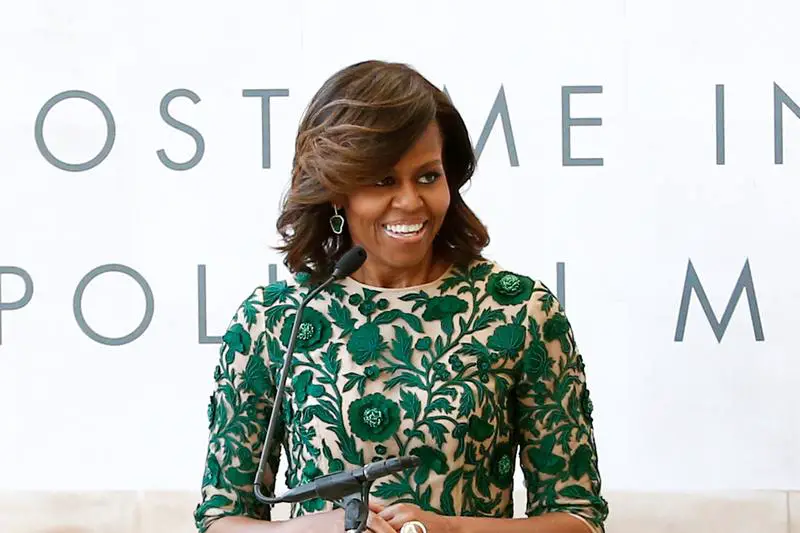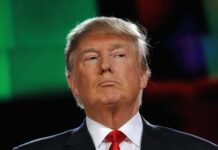Former First Lady Michelle Obama declared in a recent conversation on November 5 that the United States remains unprepared to elect a woman president, citing the outcome of the 2024 election as evidence of persistent gender barriers in American politics. Her candid remarks came during a promotional event for her new book while speaking with actor Tracee Ellis Ross.
Obama made the statement at the Brooklyn Academy of Music in New York City during a conversation with Ross that was posted to Michelle Obama’s YouTube page on Friday, November 14. The event centered on promoting her new book titled “The Look,” which examines her fashion choices during her years in the White House from 2009 to 2017.
When Ross asked whether the traditional role of first lady had affected the space available for a woman to serve as president, Obama responded directly about the country’s readiness. “As we saw in this past election, sadly, we ain’t ready,” she said, referring to the presidential race that saw Vice President Kamala Harris lose to President Donald Trump.
The former first lady also addressed persistent speculation about her own potential presidential campaign. Obama stated she was ruling out running for president herself, firmly declaring the country was not ready for a woman in that role.
Obama elaborated on what she sees as underlying resistance to female leadership in American politics. She stated that many men do not feel they can be led by a woman, a reality she believes was reflected in the most recent presidential election results. The former first lady emphasized that the country has considerable growing up to do on this issue.
The conversation touched on broader themes of gender and power in American society. Obama’s book focuses on her approach to fashion and politics during her husband Barack Obama’s presidency, exploring how she navigated being the first Black woman to serve as first lady.
Harris made history as the first woman to serve as vice president, but her 2024 campaign marked the second time in recent years that a female Democratic nominee lost to Trump. Hillary Clinton was defeated by Trump in 2016, making two of the last three Democratic presidential nominees women who ultimately failed to break the highest glass ceiling in American politics.
Obama had been a vocal supporter of Harris during the 2024 campaign, holding a rally in Michigan before the election. During that appearance, she raised concerns about what she described as the threat Trump posed to the country, particularly regarding women’s issues. She campaigned vigorously for Harris throughout the race.
The electoral data from 2024 reveals significant shifts in voter behavior along gender lines. Trump won 55 percent of male voters in the election, an increase from the 50 percent who voted for President Joe Biden in 2020. More specifically, Trump secured a majority of men under 50 in 2024, representing a shift from when Biden captured that same demographic four years earlier.
Polling data suggests persistent resistance to female presidential candidates among segments of the American electorate. According to survey results, nearly one in five voters indicated they or someone they know would not vote for a woman president. This resistance crosses demographic boundaries and represents a significant obstacle for future female candidates.
Throughout her time in the public eye, Michelle Obama has consistently ranked among the most admired and popular political figures in America. Despite this popularity and frequent calls from supporters urging her to seek the presidency, she has repeatedly declined to pursue elected office. Her latest comments reinforce her position that a presidential campaign is not in her future.
The role of first lady, while influential, carries no official governmental authority and is not an elected position. Obama emphasized during her conversation with Ross that she did not seek to replicate her husband’s role but rather used her platform to support him and advance issues she cared about during their eight years in the White House.
Obama’s assessment of American attitudes toward female leadership comes at a time when gender dynamics continue to shape political discourse across the country. Her frank acknowledgment that the nation has substantial work ahead on this front reflects observations from many political analysts who have studied voting patterns and public attitudes toward women in executive leadership positions.
The conversation between Obama and Ross provided insight into how the former first lady views the intersection of gender, politics, and public perception. Her message was clear: despite progress in many areas, significant cultural barriers remain that prevent women from achieving the presidency, and those barriers were evident in the most recent election cycle.











